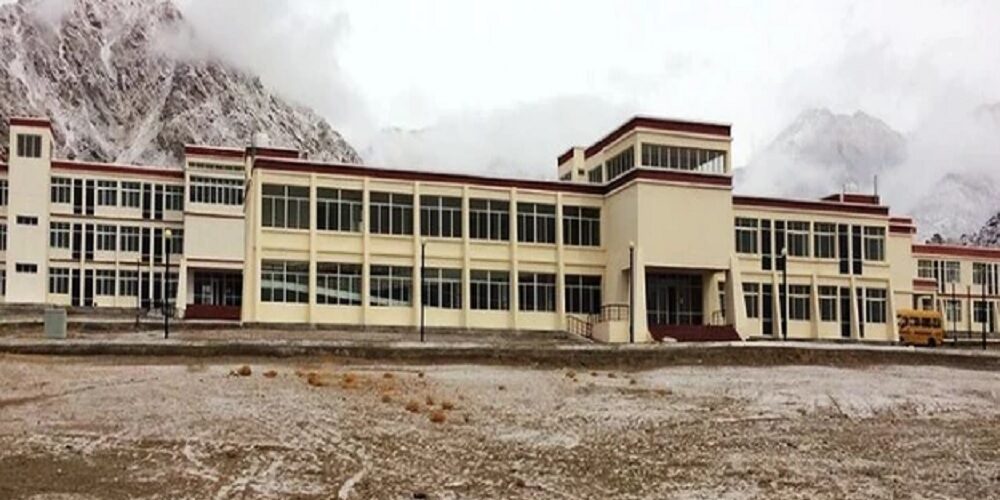India’s prestigious institutions, which were once synonymous with secure, high-paying jobs, are facing a harsh reality – a significant decline in placements.
During a recent panel discussion, industry veteran Krishna Kumar provided valuable insights into the multifaceted nature of the decline in hirings, particularly at the IITs. He emphasized that the challenges facing the Information Technology (IT) sector extend beyond mere fluctuations in hiring numbers. Instead, Kumar highlighted broader structural issues, such as a reduction in workforce sizes at major IT companies, driven by evolving market dynamics and technological disruptions. This decline, he underscored, is not merely a temporary setback but indicative of deeper shifts within the industry, necessitating a fundamental reassessment of hiring strategies and talent acquisition practices.
Several intuitive factors that seem to be contributing to this problem are:
- Economic Factors: The overall economic slowdown in India is directly impacting job placements. When industries are not expanding or are facing challenges, they are less likely to recruit fresh talent. Economic downturns often lead to companies reducing their hiring budgets or freezing hiring altogether.
- Changing Industry Landscape: The traditional sectors that heavily recruited from IITs, such as IT and manufacturing, are undergoing significant and massive transformations on various scales. Automation, AI, and other technological advancements are altering job requirements, leading to a shift in demand for certain skill sets as essentials. Additionally, emerging sectors like renewable energy, biotechnology, and data science still need to establish recruitment pipelines as the older industries.
- Skill Mismatch: While IITs are renowned for producing top-tier technical talent, there may be a disconnect between the skills students possess and the skills demanded by the industry. Companies often seek candidates with not only technical expertise but also soft skills like communication, problem-solving, and adaptability. If students lack these skills or if the curriculum needs to address them adequately, it can hinder their employability.
- Startup Ecosystem: While startups have been a significant source of job creation in India, they may not have the same resources or structured recruitment processes as established companies. This can lead to a mismatch in expectations between startups and IIT students, impacting placement numbers to a significant degree.
- Mismatch in Expectations: There may be a mismatch between the salary expectations of students and the compensation offered by companies. While IIT graduates often expect high-paying jobs, companies may be unable or unwilling to meet those expectations, leading to fewer placements.
A Cause for Alarm: Unfulfilled Dreams and Uncertain Futures
The situation at IITs paints a grim picture of the placement landscape in India, particularly in the IT and manufacturing industries. A recent report highlights a staggering statistic: 36% of graduates from IIT Bombay who registered for placements in late 2023 remained unplaced. This sharp rise compared to previous years highlights a significant decline in hiring activity. The trend isn’t isolated – other IITs report a 15% to 30% dip in hiring offers compared to pre-pandemic times.
Beyond Headlines: A Deeper Look at the Numbers
News headlines often trumpet the highest placement packages, creating a misleading picture. While the median salary for IIT graduates in FY 2024 remains steady at 20 lakh rupees (approximately $24,000) annually, a closer look reveals a hidden truth. Inflation, currently hovering around 4-6%, erodes the purchasing power of that salary. This raises anxieties among graduates about their financial security – a stark contrast to the promise of a well-paying career traditionally associated with an IIT degree.
A Glimmer of Hope or a Sign of Disparity? The Case of Top Earners
The report highlights another issue the mix. It highlights a seemingly contradictory trend: the highest placement package offered this year is a staggering 3 crore rupees (approximately $360,000). This astronomical figure might suggest a thriving job market for the absolute top performers. However, experts warn against misinterpreting this as the norm. These high-end packages are outliers, not reflective of the reality for most graduates. They represent a tiny fraction of the placement pool, leaving many questioning the true value of an IIT degree in the current market.
The Root of the Problem: A Multifaceted Crisis
Several factors are contributing to the placement woes at IITs and the broader job market slowdown:
- Economic Downturn: The Indian economy is grappling with macroeconomic challenges. Slower growth and rising costs force companies to tighten their belts, leading to a reduction in hiring activity.
- Shifting Sands in the IT Sector: The IT industry itself is undergoing a transformation. Automation and a growing focus on R&D are potentially displacing some traditional entry-level IT jobs. This shift requires graduates to possess skillsets relevant to the evolving landscape.
- Stagnant Wages: A major concern for students is stagnant starting salaries, particularly for those entering the workforce. Engineering starting salaries haven’t risen in over a decade, failing to keep pace with inflation. This creates a situation where an IIT degree, once a guarantee of financial security, no longer offers the same level of assurance.
The Ripple Effect: Unplaced Graduates, Anxious Students, and a Broader Market Impact
The slowdown in placements has a cascading impact:
- Uncertain Future for IIT Graduates: Unplaced graduates face an uncertain future. The pressure to land a high-paying job can lead to anxieties and a sense of lost potential. This can negatively impact their mental well-being and career trajectory.
- Engineering Colleges on Notice: The placement woes at IITs could be a harbinger of similar issues at other engineering colleges across the country. These colleges rely heavily on strong placement records to attract students. A decline in placements could have a domino effect, impacting the reputation and financial viability of these institutions.
- Job Market Jitters: A Broader Concern: The IT slowdown might be a leading indicator of a broader job market crisis impacting various sectors. If companies in the IT sector, traditionally a major job creator, are retrenching, it raises concerns about the health of the overall job market and its impact on other industries.
Expert Views: Navigating the Uncertain Waters
The report presents contrasting viewpoints on how to navigate this situation:
-
Krishna Kumar, an analyst, highlights the positive aspect – the existence of higher average salaries for some IIT graduates. He suggests a shift towards R&D and core sectors within the industry, where demand for skilled professionals might be higher. This perspective emphasizes adaptability and highlights potential opportunities within the changing IT landscape.
-
Student Perspective: Students counter that stagnant salaries haven’t kept pace with inflation, and the high-end packages don’t reflect the reality for most graduates. They emphasize the need for a more holistic approach that addresses not just the headline figures but also the financial well-being of the majority of graduates entering the workforce.
-
The Road Ahead: Upskilling, Rethinking Education, and Embracing Change
The Indian job market, particularly in the IT sector, stands at a crossroads. While there are signs of a slowdown, there’s also potential for a shift towards higher-skilled jobs in R&D and emerging technologies. To navigate this new reality, several key actions are crucial:
-
Upskilling and Reskilling Initiatives: A collaborative effort is needed between educational institutions and government bodies to design upskilling and reskilling programs for graduates. These programs should focus on imparting skills relevant to the evolving job market, such as artificial intelligence, machine learning, data science, and cybersecurity. Equipping graduates with these in-demand skillsets will make them more competitive and adaptable in the face of change.
-
Focus on Critical Thinking and Problem-Solving: While technical skills are important, fostering critical thinking, problem-solving abilities, and effective communication is equally crucial. These skills enable graduates to approach challenges creatively and adapt to unforeseen circumstances. The ability to think critically and solve problems effectively will be essential for success in a rapidly changing job market.
-
Revamping Engineering Education: The traditional engineering curriculum might need an overhaul. Introducing courses related to entrepreneurship, design thinking, and innovation can equip graduates not just for traditional jobs but also to become job creators themselves. This shift in focus can empower graduates to be more proactive in shaping their careers and contribute to the creation of new ventures and job opportunities.
-
Government Intervention and Policy Changes: The government can play a vital role by incentivizing companies to hire fresh graduates and offer competitive salaries. Tax breaks, subsidies, or other financial incentives can encourage companies to invest in training and development programs for new recruits. Additionally, policies promoting innovation and R&D within the IT sector can create new job opportunities for highly skilled professionals.
-
Promoting Entrepreneurship: Encouraging a culture of entrepreneurship can be a game-changer. Providing incubation centers, seed funding, and mentorship programs can empower graduates with the resources and guidance to turn their ideas into successful ventures. This not only creates jobs but also contributes to economic growth and diversification. By fostering an environment that supports innovation and risk-taking, India can unlock the entrepreneurial potential of its graduates and drive economic progress.
Conclusion
The slowdown in placements at IITs serves as a wake-up call for India to address the challenges in its job market. By acknowledging the complex issues at play, taking proactive measures, and fostering a culture of continuous learning, India can ensure that its bright minds continue to be a driving force behind the country’s economic and technological progress. This requires a multi-pronged approach that involves collaboration between various stakeholders to create a robust and future-proof job market that benefits both employers and employees.


